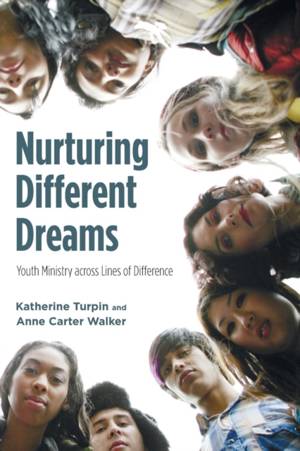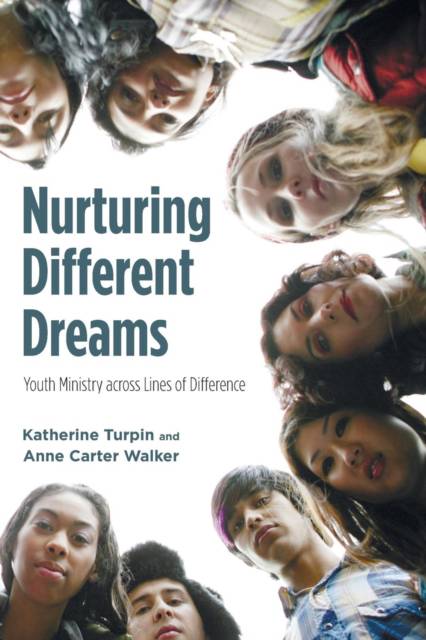
Je cadeautjes zeker op tijd in huis hebben voor de feestdagen? Kom langs in onze winkels en vind het perfecte geschenk!
- Afhalen na 1 uur in een winkel met voorraad
- Gratis thuislevering in België vanaf € 30
- Ruim aanbod met 7 miljoen producten
Je cadeautjes zeker op tijd in huis hebben voor de feestdagen? Kom langs in onze winkels en vind het perfecte geschenk!
- Afhalen na 1 uur in een winkel met voorraad
- Gratis thuislevering in België vanaf € 30
- Ruim aanbod met 7 miljoen producten
Zoeken
Nurturing Different Dreams
Youth Ministry Across Lines of Difference
Katherine Turpin, Anne Walker
Paperback | Engels
€ 32,95
+ 65 punten
Uitvoering
Omschrijving
Increasingly, adolescents and young adults in the United States are racially and socioeconomically diverse, while the teaching population remains predominantly white and middle class. Many youth ministry programs that utilize volunteer mentors recruit adults who are ill-equipped to bridge cultural differences and effectively build sustainable relationships with adolescents who come from different backgrounds than their own. College and university campus ministries that are historically white struggle to provide adequate support and mentoring for students who have traditionally not been represented in the college population. Often, mentoring relationships break down over cultural misunderstandings. As educators who come from backgrounds marked by privilege, Katherine Turpin and Anne Carter Walker draw from their experiences in an intentionally culturally diverse youth ministry program to name the challenges and inadequacies of ministry with young people from marginalized communities. Through engaging case studies and vignettes, the authors re-examine the assumptions about youth agency, vocational development, educational practice, and mentoring. Offering concrete guidelines and practices for working effectively across lines of difference, Nurturing Different Dreams invites readers to consider their own cultural assumptions and practices for mentoring adolescents, and assists readers in analyzing and transforming their practices of mentoring young people who come from different communities than their own.
Specificaties
Betrokkenen
- Auteur(s):
- Uitgeverij:
Inhoud
- Aantal bladzijden:
- 150
- Taal:
- Engels
Eigenschappen
- Productcode (EAN):
- 9781625640093
- Verschijningsdatum:
- 9/10/2014
- Uitvoering:
- Paperback
- Formaat:
- Trade paperback (VS)
- Afmetingen:
- 150 mm x 229 mm
- Gewicht:
- 226 g

Alleen bij Standaard Boekhandel
+ 65 punten op je klantenkaart van Standaard Boekhandel
Beoordelingen
We publiceren alleen reviews die voldoen aan de voorwaarden voor reviews. Bekijk onze voorwaarden voor reviews.









